

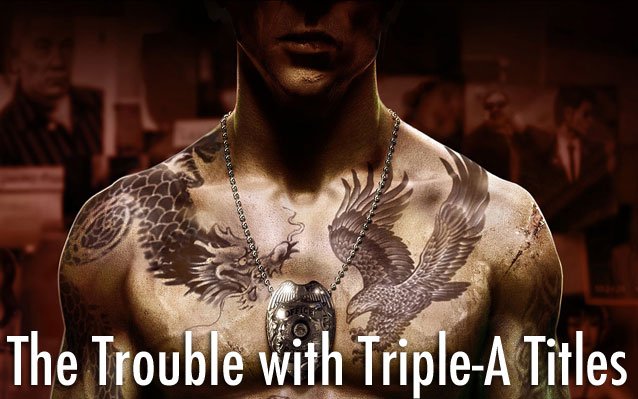
Hey, did I ever tell you my great idea for a videogame? Wait, no, let’s stop right there. For any game critic to focus on her imaginary pet projects over what’s really out there is a serious vice. Still, we all have them – these blockbusting triple-A concepts that would change the face of gaming if somebody would just make anything like them. But that won’t happen, because the factor which allows us to entertain these ideas is also the factor which makes them impossible: cost.
On Tuesday, Square Enix boss Yoichi Wada stepped down over a predicted $143m drop in profits. Two big titles – Sleeping Dogs and Hitman: Absolution – sold too few million copies. The consensus is that, as Forbes put it, “too many competitors are chasing not enough money.” Earlier, this year, THQ went bankrupt because its massive, big-budget games just weren’t selling ludicrously enough, while Ubisoft’s Jade Raymond has gone on record saying that the market has room for only ten AAA games a year.
In short, AAA might actually be fucked. When Polygon kicked off its gigantic survey of ‘the state of games’ last year with an examination of the high-end market, the numbers made queasy reading. Ubisoft, a high-performing publisher, made a total profit of 3% across all its operations, while EA had to sell 3.5 million copies of Mass Effect 3 just to modestly recoup their $40m investment. Even Activision’s 30% margin came mostly from World of Warcraft – a reliable cash cow which will one day have to be put out to pasture. “Everyone’s profits [are] coming off lucky gambles or marginal models like virtual purchases and Wii games,” wrote Polygon. “That…is why people in the know are starting to panic.”
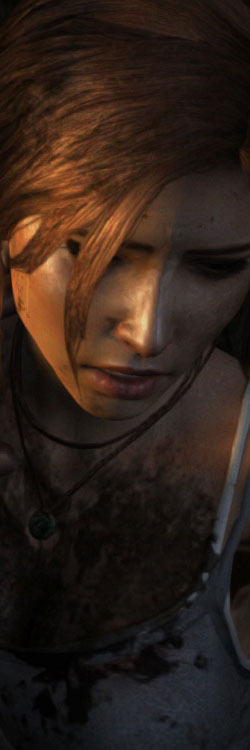 You know this. You probably also know the reasons: big, blockbuster games are now so expensive to make that many of them can’t possibly break even – and even the winners only inch into profit. And you know the results: games which play it safe. Box-ticking development driven by whatever the vast, unwieldy and bias-clouded sensory organs of corporate bodies tell their brains was popular last year. Games which get canned because they have female protagonists and that would make players feel gay.
You know this. You probably also know the reasons: big, blockbuster games are now so expensive to make that many of them can’t possibly break even – and even the winners only inch into profit. And you know the results: games which play it safe. Box-ticking development driven by whatever the vast, unwieldy and bias-clouded sensory organs of corporate bodies tell their brains was popular last year. Games which get canned because they have female protagonists and that would make players feel gay.
What we have to understand, however, is that this economic clusterfuck is intimately bound to gaming’s diversity problem. It creates the system which ensures that both new people and new ideas will always be resisted. Both will always be seen as a risk. It’s also part and parcel of crunch time and other abusive developer practices which lead to a demotivated and devastated workforce. David Rosen, who made the gun-handling QWOPlike Receiver, has laid out the ways that technology can help or hinder a game design, and why AAA development tends to iterate again and again on the same old designs. Its not a trend likely to stop any time soon. In short, the economic basis of our medium is going into meltdown, and that crisis creates ever more rigid, useless and conservative forms of business.
Worse, it’s a crisis the industry brought upon itself. Since the early 90s, console makers, developers and the gaming press have been caught in a technological ratchet – occasionally assisted by mainstream reporters gawping through the windows to coo that with this latest whatever-it-is games are one step closer to being Taken Seriously. Hardware firms compete to tech up on each other so that they can offer developers more power. Developers compete to exploit the power of each console generation for the attention of their players. The press competes to offer its readers insight into the next grand new wave. Meanwhile, all fixate on imitating films, on offering Big Stories with hundreds of hours of voice acting and immaculately directed cut-scenes. And all the while, a narrative comes into being: the narrative that with every inch of technological progress, games get closer and closer to a state of perfect simulation.
Granted, this upward spiral has conspired to give us a some amazing things. But now, the pressure on developers and console makers to meet ludicrous production costs approaches breaking point. This doesn’t mean that the AAA industry is incapable of producing interesting things: Spec Ops, Dishonored and Bioshock: Infinite all break new ground in some way, though all are conservative in others. It does mean that any improvement in diversity or innovation – any spread of new design ideas – any number of campaigns or justified media furors – will be matched by an equally vigorous and probably more powerful economic imperative against any notion of inclusion or change. That’s not because there is necessarily a genuine economic case for this behaviour. It’s because it’s the best such institutions are able to manage.
So what’s next? I’m not going to predict anyone’s doom. You can’t catch me out that easily. But obviously, another market crash – like the great calamity of 1983 – is possible. While the reasons were very different, that event should teach us not to regard the current industry order as a stable constant. The profit margins could grow too low. A big company could make one ambitious only-just-failure too many. Then maybe it cuts its staff, lays off whole divisions, and suddenly it loses its capacity to make things which will make a profit. That would be exciting and terrifying in equal measure – huge titans falling, and thousands of developers suddenly out of work, and as free to try out new things as they are to run out of money and lose their houses. It wouldn’t be pretty, but interesting things can happen when people have nothing to lose.
 Another possibility is that the market simply fragments. Indie separatism becomes the go-to ideology for those outside the system and merciless metric-mongering gospel for the big guns. Creativity becomes the preserve of scrappy outlaws, and production the exclusive property of Mitt Romney Studios. A more nuanced but equally balkanized reality is likely. Indie gamers and CoDbros grow physically apart, like the divergent classes of H.G. Wells’ The Time Machine –the former, perhaps, evolving to resemble giant brightly-coloured birds, while the latter transform into hunched pillars of rock-like muscle. The WiiU stops recognizing faces, two separate brands of Kinect are required, and the war begins in 2032.
Another possibility is that the market simply fragments. Indie separatism becomes the go-to ideology for those outside the system and merciless metric-mongering gospel for the big guns. Creativity becomes the preserve of scrappy outlaws, and production the exclusive property of Mitt Romney Studios. A more nuanced but equally balkanized reality is likely. Indie gamers and CoDbros grow physically apart, like the divergent classes of H.G. Wells’ The Time Machine –the former, perhaps, evolving to resemble giant brightly-coloured birds, while the latter transform into hunched pillars of rock-like muscle. The WiiU stops recognizing faces, two separate brands of Kinect are required, and the war begins in 2032.
More likely, we’d see a more nuanced but equally balkanized landscape. A report by Enders Analysis – paywalled, alas, and unlinkable – suggests that the next generation of big consoles could be “the last recognizable console cycle.” Games proliferate onto cheaper platforms with lower production expectations – tablets, phones, or ‘microconsoles’, whose viability has been trumpeted by many but proven by none. Still, this doesn’t necessarily mean greater diversity or creativity if walled-garden app curators display the same conservatism as Apple did last week when it booted Sweatshop HD off the iPad store. It would also mean radical change for the big publishers. If fewer games are made for the big consoles, then there’ll be fewer reasons to buy them in the first place, and vice versa; a recipe for a vicious downward spiral.
Finally, changes in how games are made could save the AAA industry from itself. In the present market high fidelity takes up too much money to allow for taking risks. One way the industry might deal with that is to automate the production of content – i.e. guided procedural generation. If developers invest in tools which allow the eye-watering jungles of Crysis or the gilded tunnels of Black Ops to be created automatically according to artistically prepared parameters, feeding the graphics beast could get a whole lot cheaper. The outsourcing of content creation to third-party ‘libraries’ could have a similar effect – but layers of middleware upon middleware is the norm even now, and it hasn’t solved the problem. Any technological solution will need to strike directly at its heart: at the cost of labour, and the ratio of labour to output.
All, some or none of these things may come to pass. Two things, however, are certain. One is that the starving animal of the top-tier corporate games industry is being driven to double down on its worst and most moribund instincts. The other is that things are going to change. Whether that change will blow games wide open to the outsiders and the risk-takers or whether it will entrench a new hierarchy of defensive media giants is up for the toss, but in the meantime, let’s not be surprised if things get worse before they get better.

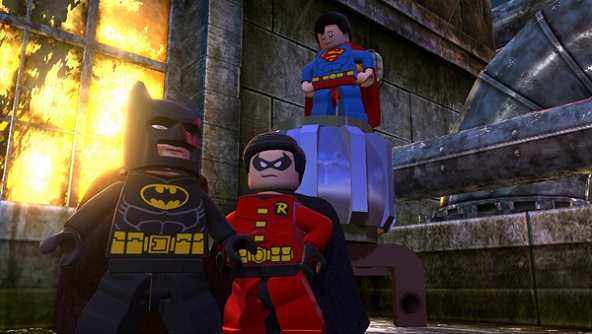

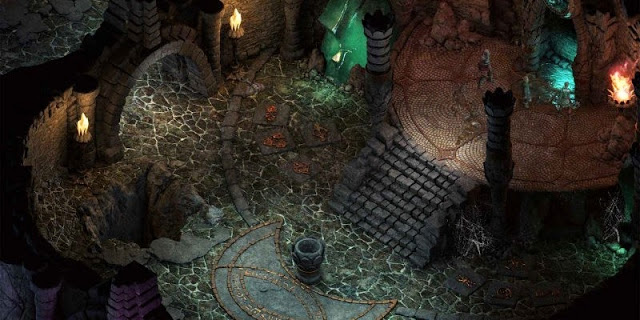
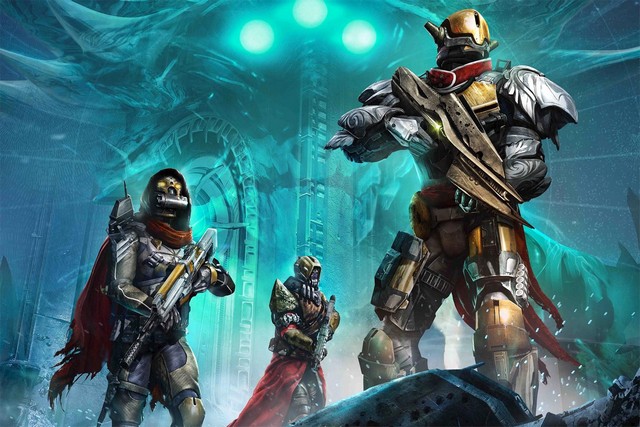 Destiny Guide: How To Jump Crota's Bridge With Every Class
Destiny Guide: How To Jump Crota's Bridge With Every Class Why Touchscreen Controls Are Useless For Retro Gaming & How To Fix It
Why Touchscreen Controls Are Useless For Retro Gaming & How To Fix It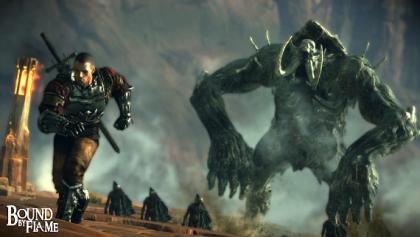 Bound by Flame Guide to unlock all Trophies or Achievements
Bound by Flame Guide to unlock all Trophies or Achievements Killzone 3 Wallpapers in HD
Killzone 3 Wallpapers in HD How to Read Newspaper Comics Online Now for Free
How to Read Newspaper Comics Online Now for Free